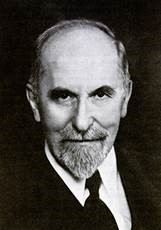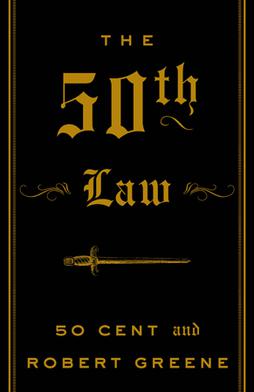
Self-help or self-improvement is a self-directed improvement of oneself—economically, physically, intellectually, or emotionally—often with a substantial psychological basis.

William Clement Stone was an American businessman, philanthropist and New Thought self-help book author.

Oliver Napoleon Hill was an American self-help author. He is best known for his book Think and Grow Rich (1937), which is among the best-selling self-help books of all time. Hill's works insisted that fervid expectations are essential to improving one's life. Most of his books were promoted as expounding principles to achieve "success".

Think and Grow Rich is a book written by Napoleon Hill and Rosa Lee Beeland released in 1937 and promoted as a personal development and self-improvement book. He claimed to be inspired by a suggestion from business magnate and later-philanthropist Andrew Carnegie. However, there is no evidence that the two ever met.

William Walker Atkinson was an attorney, merchant, publisher, and author, as well as an occultist and an American pioneer of the New Thought movement. He is the author of the pseudonymous works attributed to Theron Q. Dumont and Yogi Ramacharaka.
A BitTorrent tracker is a special type of server that assists in the communication between peers using the BitTorrent protocol.
Positive mental attitude (PMA) is a concept first introduced in 1937 by Napoleon Hill in the book Think and Grow Rich. The book never actually uses the term, but discusses the importance of positive thinking as a contributing factor of success. Napoleon, who along with W. Clement Stone, founder of Combined Insurance, later wrote Success Through a Positive Mental Attitude, defines positive mental attitude as comprising the 'plus' characteristics represented by words as faith, integrity, hope, optimism, courage, initiative, generosity, tolerance, tact, kindliness and good common sense.

The Secret is a 2006 Australian-American spirituality documentary consisting of a series of interviews designed to demonstrate the New Thought "law of attraction", the belief that everything one wants or needs can be satisfied by believing in an outcome, repeatedly thinking about it, and maintaining positive emotional states to "attract" the desired outcome.

John Calvin Maxwell is an American author, speaker, and pastor who has written many books, primarily focusing on leadership. Titles include The 21 Irrefutable Laws of Leadership and The 21 Indispensable Qualities of a Leader. Some of his books have been on the New York Times Best Seller List.
The law of attraction is the New Thought spiritual belief that positive or negative thoughts bring positive or negative experiences into a person's life. The belief is based on the idea that people and their thoughts are made from "pure energy" and that like energy can attract like energy, thereby allowing people to improve their health, wealth, or personal relationships. There is no empirical scientific evidence supporting the law of attraction, and it is widely considered to be pseudoscience or religion couched in scientific language. This belief has alternative names that have varied in popularity over time, including manifestation and lucky girl syndrome.
The Science of Getting Rich is a book written by the New Thought Movement writer Wallace D. Wattles and published in 1910 by the Elizabeth Towne Company. The book is still in print. According to USA Today, the text is "divided into 17 short, straight-to-the-point chapters that explain how to overcome mental barriers, and how creation, rather than competition, is the hidden key to wealth attraction."

Charles Francis Haanel was an American author, philosopher and a businessman. He is best known for his contributions to the New Thought movement through his book The Master Key System.

Dr. Orison Swett Marden (1848–1924) was an American inspirational author who wrote about achieving success in life and founded SUCCESS magazine in 1897. His writings discuss common-sense principles and virtues that make for a well-rounded, successful life. Many of his ideas are based on New Thought philosophy.
"Thinking" is a poem written by Walter D. Wintle, a poet who lived in the late 19th and early 20th century. Little to nothing is known about any details of his life. "Thinking" is also known as "The Man Who Thinks He Can".

Harold Waldwin Percival was a philosopher and writer, best known for Thinking and Destiny, in print since 1946. Between 1904 and 1917 he published The Word. In 1950 he founded The Word Foundation, Inc. to keep Thinking and Destiny and all of his other works in print.

The 50th Law is a New York Times bestselling book on strategy and fearlessness written collaboratively by rapper 50 Cent and author Robert Greene. The book is a semi-autobiographical account detailing 50 Cent's rise as both a young urban hustler and as an up-and-coming musician with lessons and anecdotes from historical figures such as Abraham Lincoln, Sun Tzu, Socrates, Napoleon, Malcolm X, and James Baldwin.
This is a summary of the different copyright policies of academic publishers for books, book chapters, and journal articles.
A mastermind group is a peer-to-peer mentoring group used to help members solve their problems with input and advice from the other group members. The concept was coined in 1925 by author Napoleon Hill in his book The Law of Success, and described in more detail in his 1937 book Think and Grow Rich. In his books, Hill discussed the idea of the Master Mind, which referred to two or more people coming together in harmony to solve problems.

100 Things Successful People Do: Little Exercises for Successful Living is a self-help guide by Nigel Cumberland.

Why We Want You to Be Rich: Two Men, One Message is a non-fiction book about personal finance, co-authored by Donald Trump and Robert Kiyosaki. The book was first published in hardcover format in 2006. The coauthors became familiar with each other through mutual work at The Learning Annex and Trump being impressed by Kiyosaki's writing success with Rich Dad Poor Dad. Trump and Kiyosaki co-authored another book together in 2011, Midas Touch: Why Some Entrepreneurs Get Rich-And Why Most Don't. The book discusses American economic problems including the middle-class squeeze, economic globalization, and the national debt of the United States. The authors advise the reader to gain financial literacy and delve into entrepreneurship. Trump and Kiyosaki criticize mutual funds and advocate real estate investing as a way to build wealth.













